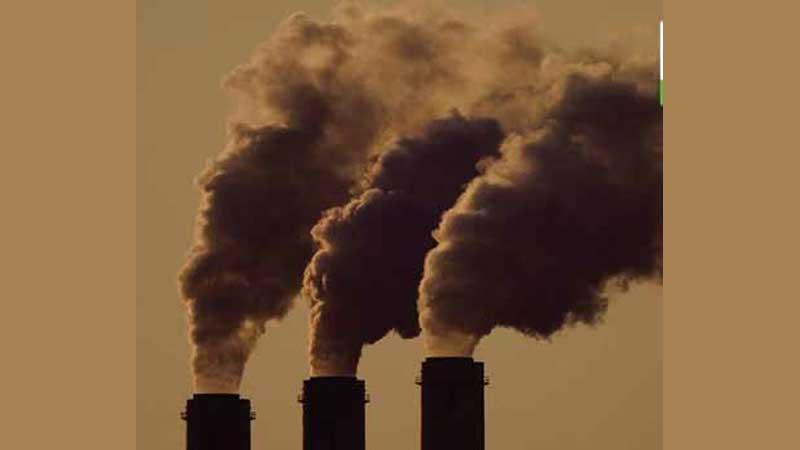
* Keep fossil fuels in the ground
Burning fossil fuels such as oil, gas, and especially coal, releases carbon dioxide (CO2) into the atmosphere, trapping heat and raising global temperatures.
It’s an issue which has to be tackled at Government level if temperature rises are to be limited to 1.5C - the level considered the gateway to dangerous climate change.
However, many major coal-dependent countries - such as Australia, the US, China and India - have declined to sign a deal at the summit aimed at phasing out the energy source in the coming decades.
* Curb methane emissions
A recent UN report has suggested that reducing emissions of methane could make an important contribution to tackling the planetary emergency.
A substantial amount of methane is released from “flaring” - the burning of natural gas during oil extraction - and could be stopped with technical fixes. Finding better ways of disposing of rubbish is also important, because landfill sites are another big methane source.
At COP26, nearly 100 countries agreed to cut methane emissions, in a deal spearheaded by the US and the EU. The Global Methane Pledge aims to limit methane emissions by 30 percent compared with 2020 levels.
* Switch to renewable energy
Electricity and heat generation make a greater contribution to global emissions than any economic sector.
Transforming the global energy system from one reliant on fossil fuels to one dominated by clean technology - known as decarbonisation - is critical for meeting current climate goals.
Wind and solar power will need to dominate the energy mix by 2050 if countries are to deliver on their net zero targets.
There are challenges, however.
Less wind means less electricity generated, but better battery technology could help us store surplus energy from renewables, ready to be released when needed.
* Abandon petrol and diesel
We’ll also need to change the way we power the vehicles we use to get around on land, sea and in the air.
Ditching petrol and diesel cars and switching to electric vehicles will be critical.
And scientists are working on new, cleaner fuels for aircraft, although campaigners are also urging people to reduce the number of flights they take.
* Plant more trees
A UN report in 2018 said that, to have a realistic chance of keeping the global temperature rise under 1.5C, we’ll have to remove CO2 from the air.
Forests are excellent at soaking it up from the atmosphere - one reason why campaigners and scientists emphasise the need to protect the natural world by reducing deforestation.
Trees are likely to be important as countries wrestle with their net zero targets, because once emissions have been reduced as much as possible, remaining emissions could be “cancelled out” by carbon sinks such as forests.
* Remove greenhouse gases from the air
Emerging technologies that artificially remove CO2 from the atmosphere, or stop it being released in the first place, could play a role.
A number of direct-air capture facilities are being developed, including plants built by Carbon Engineering in Texas and Climeworks in Switzerland. They work by using huge fans to push air through a chemical filter that absorbs CO2.
Another method is carbon capture and storage, which captures emissions at “point sources” where they are produced, such as at coal-fired power plants. The CO2 is then buried deep underground.
However, the technology is expensive - and controversial, because it is seen by critics as helping perpetuate a reliance on fossil fuels. -BBC
